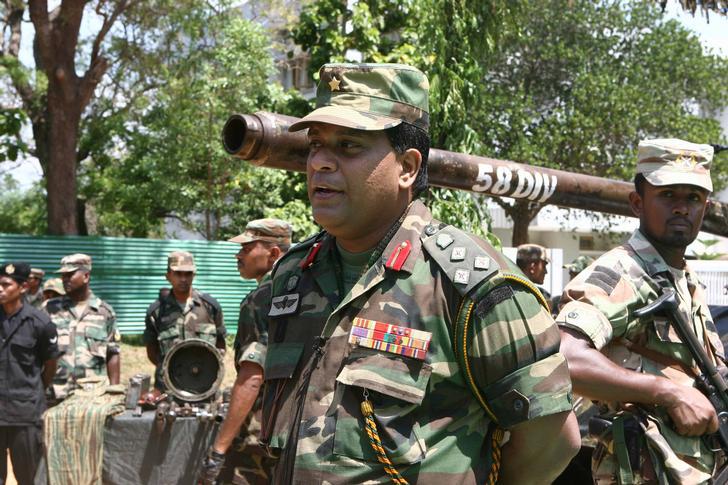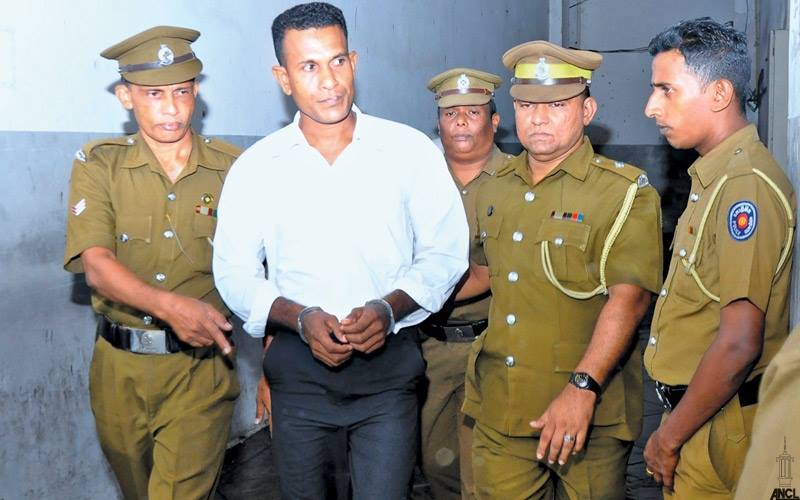British MPs calls for sanctions on Sri Lankan government and military officials
Following a parliamentary election which has further empowered the Rajapaksa regime, the All-Party Parliamentary Group for Tamils (APPGT) in the UK has called upon Britain’s Foreign Secretary, Dominic Raab, to implement sanctions against senior Sri Lankan officials.
The officials listed are former President Chandrika Bandaranaike Kumaratunga; Field Marshal Sarath Fonseka; Lieutenant General Shavendra Silva; and, Staff Sergeant Sunil Ratnayake.
In their letter to Raab, the APPGT emphasises that the UK has maintained a “longstanding commitment to accountability and reconciliation” which is threatened by the return of the Rajapaksa administration. The cross-party group of parliamentarians listed the above Sri Lankan government and military officials, stating "it is evident that without accountability for atrocity crimes, Sri Lanka will continue to be trapped in recurrent cycles of ethnonationalist violence". "As a core supporter of transitional justice efforts in Sri Lanka, the United Kingdom has a unique responsibility to send a strong message to Sri Lanka, that atrocity crimes will not go unpunished and thereby prevent future atrocity crimes from occurring," the statement added.
In 2015, the UK played a key role in the co-sponsorship of UN resolution 30/1, in which Sri Lanka “pledged to undertake a meaningful transitional justice process, including setting up a hybrid court with international judges, security sector reform and a political settlement that would address the root causes of the ethnic conflict on the island”.
In February of this year, the Rajapaksa’s openly denounced the co-sponsored UN Resolution 30/1 and by doing so turned “their backs on the international community” “firmly rejecting any prospects of justice for victim communities”.
Recognising the failure of successive Sri Lankan leaders since the end of the armed conflict, in 2017, former UN Human Rights Chief, Zeid Ra’ad Al Hussein called on member states to explore avenues to exercise universal jurisdiction to bring perpetrators of atrocity crimes in Sri Lanka to account.
The statement maintains that instead of pursuing sustainable peace, the administration has descended into;
“an ethnocratic authoritarian state with the targeting of human rights defenders, increasing militarisation of traditional Tamil homelands and the promotion of individuals accused of serious human rights”.
There has also been increasing concerns over the risk of further atrocities against Tamil and Muslim populations which were highlighted by the UK in the statement of the core group of supporters to Resolution 30/1 at the 44th Session of the UN Human Rights Council in June.
The APPGT warn that without accountability for previous crimes Sri Lanka will find itself “trapped in recurrent cycles of ethnonationalist violence”.
Comparisons to Myanmar
This letter follows the announcement from the UK of a new sanctions regime which includes sanctions against two high-ranking military generals in Myanmar.
In their statement, they note the similarities of Sri Lanka to Myanmar, “where an ethnonationalist military”.
Akin to the actions taken against Myanmar officials, the APGT maintains that a similar role could be played in Sri Lanka where international accountability measures are used to advance justice. They further highlight the serious and credible accusations of human rights abuses against Shavendra Silva and Sunil Ratnayake.
Chandrika Bandaranaike Kumaratuga
![]()
In the APPGT statement, they highlight the horrific human rights abuses which occurred under President Chandrika Bandaranaike Kumaratunga Presidency, from 1994 to 2005.
Most notably was the bombing of Navaly Church that resulted in 140 civilian deaths and Nagarkovil School that resulted in 71 civilian deaths including 25 school children.
The statement further highlights that despite these war crimes, she has regularly visited the UK where many who had fled her regime fled and sought asylum.
According to the APGT;
“her visits instil fear and acts as a reminder of the impunity Sri Lankan war criminals enjoy at home and abroad”.
Sarath Fonseka
![]()
Sarath Fonseka was the commander of the Sri Lankan Army from 2005 until the end of the armed conflict in May 2009. Sri Lankan forces under his command have been implicated in numerous instances of unlawful shelling of civilians and hospitals, rape and other sexual violence, and the summary execution of prisoners.
Shavendra Silva

Shavendra Silva was head of the 58th Division of the Sri Lankan Army during the final stages of the armed conflict. The APGT highlight that approximately 7,000 civilians were killed during the final stages of the war with Silva's forces being implicated in the most egregious crimes. Despite these war crimes, the Sri Lankan government promoted Silva to Head of the Army in August 2019, to widespread international condemnation.
In February 2020, the United States Secretary of State barred Silva and his family from entering the US “due to credible information of his involvement, through command responsibility, in gross violations of human rights, namely extrajudicial killings, by the 58th Division of the Sri Lanka Army during the final phase of Sri Lanka’s Civil War in 2009.”
The Foreign Office’s 2019 Human Rights and Democracy report further highlights Silva’s appointment as an area of concern, stating;
"This appointment called into question Sri Lanka’s commitments made to the HRC on justice and accountability. In response to the appointment, the UN Department of Peace Operations announced in September that it would suspend future deployments of Sri Lankan peacekeepers, except where the suspension would expose UN operations to serious operational risk”.
Sunil Ratnayake

Sunil Rathnayake was one of the few convictions for war crimes which have been successful and was applauded as a good example by Colombo’s High Court however he was pardoned earlier this year.
Ratnayake was sentenced to death in 2015 for a massacre which occurred on 10 December 2000.
Nine Tamil civilians travelling to the town of Mirusuvil, in Jaffna, were attacked and killed by members of the 6th Gajaba Regiment’s Special Operations Unit.
The following day their bodies were found in a mass grave with their throats slashed, according to the District Medical Officer’s post-mortem report. All but two of the bodies had been stripped naked. The youngest to have been murdered was a 5-year-old child.
The sole survivor of the attack, Ponnathurai Maheswaran, testified in court and identified at least five soldiers involved in the attack however it was only Ratnayake who was sentenced whilst the others were cleared of all charges.
The UK as part of the core group of states co-sponsoring Resolution 30/1 has criticised the pardon of Ratnayake.
An important “first step”
In concluding their statement, the APPGT describe sanctions on these key individuals as important “first step” and further stated:
“Kumaratunge, Fonseka, Silva and Ratnayake are only four of a long list of individuals from the Sri Lankan military against whom there is credible evidence of grave human rights violations, including violating the right to life and the right to be free from torture, but their designation will have the symbolic effect of sending a strong message to the Sri Lankan government that the UK will not let go of the need for accountability for war crimes and thereby contribute towards preventing further atrocity crimes”.
Read the full statement here.



No comments:
Post a Comment
Note: only a member of this blog may post a comment.